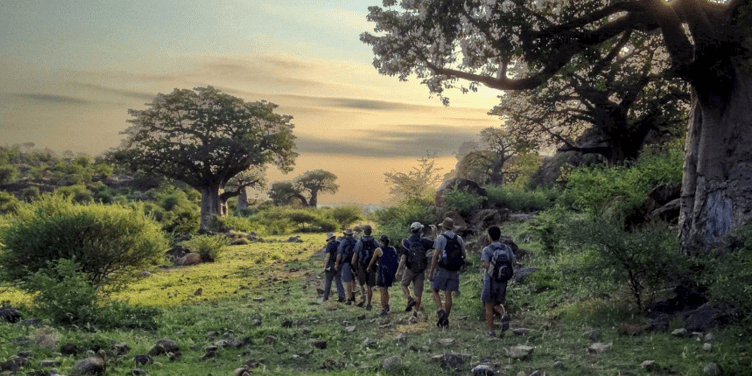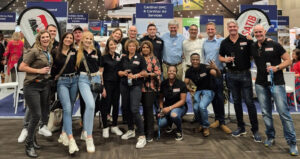A guides understanding of responsibility, liability and critical incident management.
Guides are the experiential interface of Brand South Africa making us ambassadors for not only ourselves, but for the tourism
industry and country at large. As a guide this carries a weighty responsibility which should not to be taken lightly. Part of this responsibility is to ensure that we are aware, at all times, of our roles and responsibilities.
Inherent or Associated Risk:
All activities we carry out in the completion of a guided experience carry inherent, associated risks that we as guides need to strive to minimise or reduce at all times.
- We need to ensure that we are aware of all potential risks and hazards within our particular field of expertise andthe guided experiences we undertake
- We need to adhere to, and carefully implement, procedures and operational protocols (both theoretical and practical) which have been put in place to minimise each and every identified risk or hazard
Part of this preparatory phase includes the fact under law, that guides need to be legal in all respects of the law as laid out by the NDT (National Dept. of Tourism) and existing legislation. The onus is on us as guides, first and foremost, to ensure we are compliant in this regard whilst conducting our guided experiences.
Currently our critical incident management response center receives on average:
- 10-15 calls per day (greater majority for minor issues, slip and falls etc.)
- 20 to 30 calls per month of a more serious nature
- Of which 2-4 per month require critical, often lifesaving intervention
- Of which a further 2-3 per month go to litigation
This is just the tip of the iceberg as far more incidents occur across the industry than are reported. These sobering statistics should drive us, as guides, to ensure that we understand and stay current regarding all aspects of guide responsibility and liability in the modern tourism sector.
The 3 main liability types that both full time and self-employed/freelance guides need to be aware of are:
General Public Liability:
This cover is to protect you/your business should you/your business be found legally liable following negligence that results in a third party person suffering bodily injury/death or third party property damage, but excludes any loss / damage / bodily injury caused as a result of a mechanically propelled vehicle
Passenger Liability:
This will protect you if you are held liable for the injury of any of the passengers in a vehicle. (This would however exclude any driver/guide in the vehicle)
Personal legal liability cover:
This cover is in place to protect the guide for incidents that occur when the guide is acting outside of the perceived scope of his or her job description or outside the scope of prescribed work hours/activities (any after-hours activity)
When an incident occurs that involves perceived negligence, the extent of the perceived negligence as well as the extent of the resultant injuries will be a factor in determining the nature of the follow-up investigation and resultant findings.
Prescribed Duty of Care:
As guides under law we have a prescribed duty of care to guests under our guidance and control during an activity. The test of ascertaining the existence of a duty of care in any particular case is the ‘foresight of a reasonable person’ and as such the following questions would again be asked:
- Would a reasonable person, in the position of the defendant, have foreseen the possibility of their conduct injuring another?
- Would a reasonable person have taken steps to guard against such dangers?
- If so, did the defendant take the relevant steps in question? If not, the defendant may be found negligent
Should an Incident occur, the duty of care process can be enhanced through the contracting or use of a specialist medical emergency response service such as SATIB24 Crisis Call centre. This is vital for a number of reasons with the most important being the transfer of liability to the service provider for decisions made in dealing with the crisis situation. This transfer of liability also ensures that the entire incident is recorded for future reference in the event of a personal injury claim or criminal proceedings being instituted against you as the guide down the line.
The Darker side of Guiding:
There is however, an aspect of guiding that is virtually never mentioned, namely the potential for injury or worse every time we guide guests in our daily activities. This poses the very real question of ‘are we as guides as psychologically prepared as we can be in fulfillment of our guiding duties?’
When reviewing recent incidents, a trend has started to emerge – this is that some of these incidents are being precipitated or exacerbated through either hesitation or self-preservation based thought processes and actions on behalf of the guide regardless of level of training or guiding experience. How do we as an industry counter this? This is a question that will remain largely unanswered for the foreseeable future until more effective research and measures are put in place.
Ideally we need to be able to link the following going forward:
- Improved situational and environmental awareness
- Embedded operational and emergency protocols
- Improved psychology of self, through better psychological preparation of guides in combination with relevant training and experience
The question remains – how do we effectively facilitate this for inexperienced or newly qualifying/qualified guides? Currently the general consensus in the guiding field is that these 3 elements improve with experience. Perhaps it is time to look outside of what is a traditionally inward focused industry for lessons to learn in this core area of guide development going forward.
As guides in the modern tourism sector the following is vital:
- Proper preparation in terms of relevant qualifications, protocols and procedures for our guiding field
- An overarching awareness of the potential hazards and associated risks involved with our specific guided experiences & environments
This preparation and awareness needs to be inherent in our approach to guided experiences on multiple levels:
- From the baseline of the guided experience (introduction, conduction and completion).
- To the greater context of our guests, our associated duty of care and associated incident management systems and protocols
- To the resultant risk and legal/liability exposures to both the area of operation (lodge, reserve, attraction etc.) and ourselves as guides should an incident of any nature occur
For more information see http://www.satibguides.co.za/
Article by Brandon Ford – SATIB Insurance Brokers Brokers



